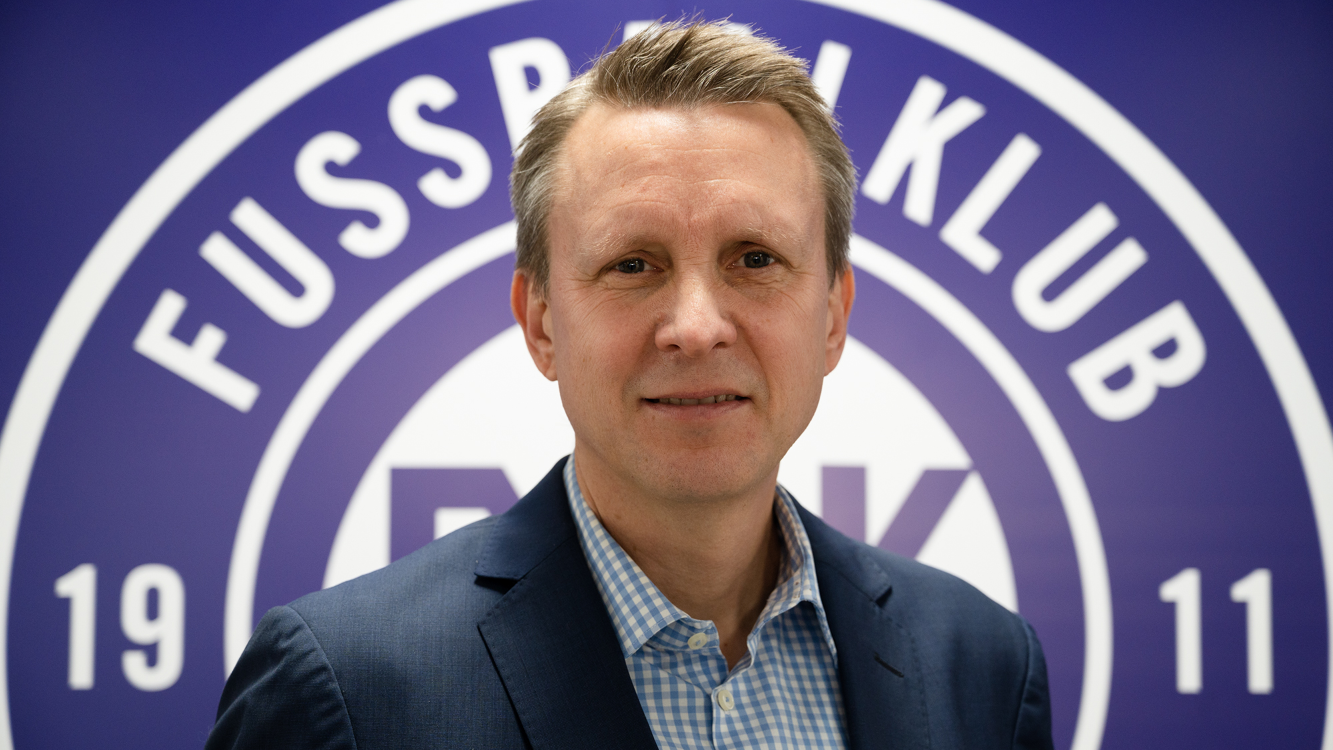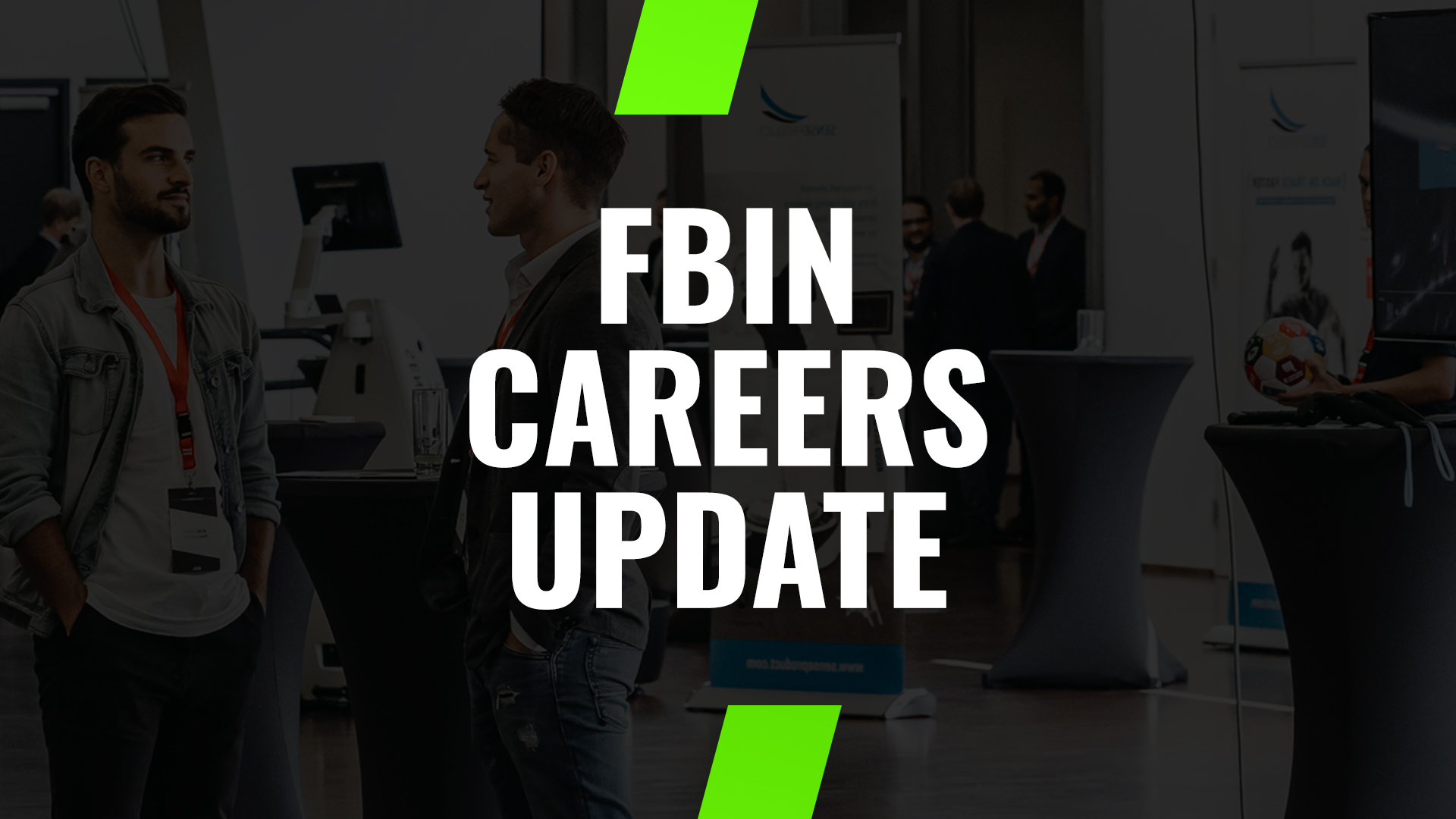From Oracle’s boardroom to the heart of FK Austria Wien, join us as we explore the unique journey of Johannes Dobretsberger. In this episode, we delve into Johannes’s transition from his role as EMEA Marketing Director at Oracle to becoming the Head Of Marketing & Sales at FK Austria Wien. Gain unique insights and explore the differences between the corporate world and the football industry, the distinctive characteristics of Austrian football, and the exciting future of this iconic club.
From Oracle’s EMEA Marketing Director to FK Austria Wien after 17 Years
At Oracle, Johannes was involved in various global sports partnerships, including Formula One and the Premier League. These experiences, coupled with his responsibilities in the EMEA region, provided him a unique perspective on sports marketing.
Johannes’s deep-rooted connection with football extended beyond his professional life, being actively involved in Austrian football federations and serving as a vice president. His decision to move into the football industry was fueled by his experiences as a fan at Austria Vienna’s stadium, where he witnessed the vibrant atmosphere and the growing fan base.
Embracing the risk and stepping out of his comfort zone, Johannes’s move to FK Austria Wien was driven by a desire to apply his corporate experience in a new context and to pursue his passion for football.
Insights into the club’s current business situation regarding Johannes’s role
Johannes highlighted the economic difficulties, such as inflation and the high cost of living, along with broader political issues in Europe and globally. Johannes sees these as challenges that need to be transformed into opportunities, emphasizing a positive spirit in tackling them.
On the sporting side, Johannes shared about focusing on young player development, aligning with Austria Vienna’s DNA and core values.
From an economic standpoint, he strongly emphasized the need for efficiency and focus in operations, drawing from his experience at Oracle about the necessity of staying focused to avoid getting lost.
He also discussed the club’s cultural initiatives, including building a diverse and inclusive environment. This includes having a women’s team, a special-need team and hosting the national team in their stadium, creating a storyboard that appeals not only to fans but also to partners and sponsors.
“In all sponsorships we’ve done at Oracle, it always starts with the story…and it could be a technology solution, a cooperation, a sponsorship, but it all starts with a story.”
FK Austria Wien’s unique selling points
The club’s unique selling point varies depending on who you ask, but Johannes identifies their history and culture as key. He emphasizes the club’s pride in its history and forward-looking approach.
Among them, the most outstanding element is the fan engagement in the stadium, which goes beyond entertainment to a deep level of commitment, resonating with both partners and sponsors. This engagement, evident in the atmosphere during matches, is a unique characteristic of the club, remaining strong regardless of the game’s outcome.
Additionally, Johannes highlights the club’s commitment to inclusivity, as seen with their women’s team. This cultural uniqueness, combined with a rich history and strong fan base, sets FK Austria Vienna apart. Johannes concludes that while every club has its own culture, Austria Vienna’s blend of history, fan engagement, and storytelling makes it uniquely compelling.
Transforming Generali Arena into a Multipurpose Entertainment Center
Johannes emphasized that every stadium should serve more purposes than just being available for games. He noted that it shouldn’t be idle in the balance sheet but used more extensively. This led to hosting the Austrian women’s national team and the Vienna Vikings football club at their stadium. Additionally, they’re bringing people in for various side events, like tournaments and the Diversity Derby with Rapid Vienna. The goal is to utilize the stadium more than just their home games.
Johannes also mentioned the stadium’s other facilities, such as a large gym, a Gusto restaurant, and outdoor areas, which can be used beyond football events. He envisions the stadium as an entertainment center, inspired by American models where stadiums are part of larger entertainment complexes. This vision extends to thinking about future uses for stadiums, not just for FK Austria Wien but for all stadiums, to be more community-centric, bringing people together for sports and health, both mentally and physically.
Is FK Austria Wien considering any new business models like Esports, NFTs, and fan tokens?
The clubs have these emerging trends on their radar, but the primary focus is on activities with short-term returns on investment due to limited resources. Johannes stressed the importance of cooperative thinking, approaching these trends from a customer’s perspective to determine their true value. While Esports, NFTs, and fan tokens are part of their future considerations, they are not the highest priority in the short term.
The club’s immediate goals revolve around keeping their existing customers happy and committed, even during challenging times like periods of high inflation. They also aim to reach new customers through their ongoing digital journey, leveraging their engaged community.
From your experiences in the corporate world, particularly at Oracle, what practices can be applied to football?
Johannes highlighted the significance of taking calculated risks, a practice he observed at Oracle. He emphasized the need for Austrian football to embrace bold and innovative decisions in the future, thereby changing perspectives. He even envisioned a scenario where, for example, fans could use virtual reality to immerse themselves in the game, whether as a referee or a player, showcasing how technology can empower football fans.
Lasly, it’s crucial to acknowledge the influence of data in football, both nationally and internationally. He firmly believes that integrating innovative technology and data story-telling will enhance the fan experience in football’s future, albeit with caution and sensitivity.
Challenges faced during the transition from the corporate world to football
First, the biggest challenge is the issue of focus, given the highly emotional nature of football. Football, being a sport filled with intense emotions, can make it difficult to maintain focus on ongoing projects. This challenge becomes particularly evident when so many people are eager to help and contribute.
“Many people have ideas, many people want to bring new ways of working to the club. This is good, and it’s important to be open to new ideas. However, at the end of the day, what truly matters is execution, execution, execution, execution. I can’t repeat it enough because execution is what truly helps a club in the way it operates.”
Secondly, there is a need to consider the economic aspect, specifically what contributes to profit margins. Ultimately, the focus should center on maximizing margins, which can be a demanding task but is crucial for future success.
However, the positive aspect lies in the decision-making process, which is notably straightforward in football. Unlike large corporations such as Oracle, where approval processes may involve senior vice presidents, line managers and complex procedures, football clubs can empower individuals to make decisions if they have a well-justified idea and stakeholder commitment.
Listen to the full episode for more insights on these intriguing questions:
- The key pillars for growth strategies at FK Austria Wien in the coming years.
- Unique characteristics of Austrian football.
- Johannes’s perspectives on Red Bull Salzburg’s dominance and its impact on the Austrian leagues.


 Upgrade to Premium Now
Upgrade to Premium Now






